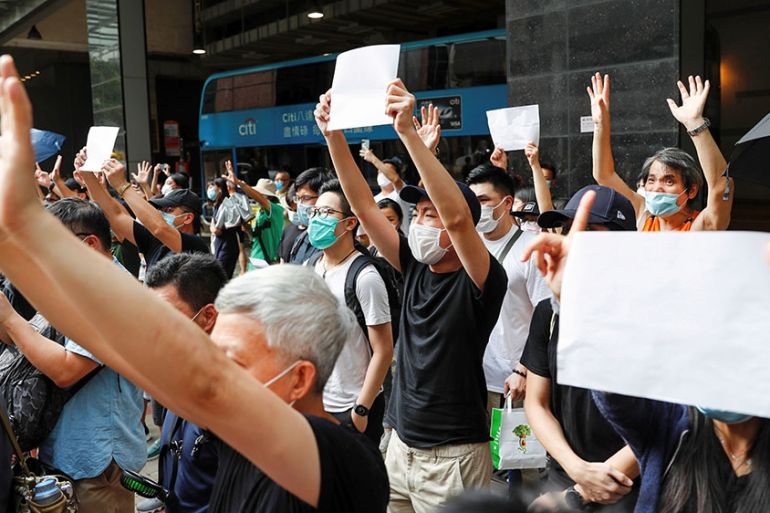Facebook and Twitter halt data requests on Hong Kong users
Pause follows new national security law imposed by China on Hong Kong that makes it easier to arrest protestors.

Facebook Inc and Twitter Inc have suspended processing government requests for user data in Hong Kong, the social media giants said on Monday, following China’s establishment of a new national security law for the semi-autonomous city.
Facebook, which also owns WhatsApp and Instagram, is “pausing” reviews for all of its services “pending further assessment of the National Security Law,” it said in a statement.
Keep reading
list of 4 itemsRare deep-sea squid filmed by scientists
Palestinian life under Israeli occupation: An illustrated guideThis article will be opened in a new browser window
Boeing’s jets turn 70: A timeline of highs, lows and turbulence
Twitter said it had suspended all information requests from Hong Kong authorities immediately after the law went into effect last week, citing “grave concerns” about its implications.
The companies did not specify whether the suspensions would also apply to government requests for removals of user-generated content from its services in Hong Kong.
Social networks often apply localised restrictions to posts that violate local laws but not their own rules for acceptable speech. Facebook restricted 394 such pieces of content in Hong Kong in the second half of 2019, up from eight restrictions in the first half of the year.
Tech companies have long operated freely in Hong Kong, a regional financial hub where internet access has been unaffected by restrictions imposed in mainland China, which blocks Google, Twitter and Facebook.
Last week, China’s parliament passed sweeping new national security legislation for the semi-autonomous city, setting the stage for the most radical changes to the former British colony’s way of life since it returned to Chinese rule 23 years ago.
Some Hong Kong residents said they were reviewing their previous posts on social media related to pro-democracy protests and the security law, and proactively deleting ones they thought would be viewed as sensitive.
The legislation pushed China further along a collision course with the United States, with which it is already in disputes over trade, the South China sea and the coronavirus.